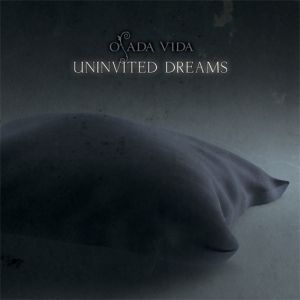Sure “Osada” means “settlement” in Polish, but “Osada Vida” as a band name does not mean “Ghost Town”, in a combination of regional Polish and esperanto. The band took their name from a remote village in Benin, Africa, where people are said to live in harmony and allow for pythons to protect their babies. Lukasz Lisiak (bass, vocals) and Adam Podzimski (drums) started the band in 1997 as a trio. People came and left but keyboardist Rafal “R6” Paluszek stayed. Their music evolved as well. They had couple of independent releases. Then, along came guitarist Bartek “B2” Bereska. And now please make sure you’re seated as you read these: this line-up put out not less than three concept albums in as many past years. This, in an era where established names take years and years to release a new CD. And this while all band members were holding on to their day jobs in Silesia, Poland.
How was it possible to achieve as much only in four years? Lukasz has musical ideas all the time. Adam and his wife Ola are the band’s lyricists. Did you think Neil Peart was the only good drummer and lyricist? Add to this that, in “Tongue”, from the band’s second, The Body Parts Party (2008) album, R6 uses a synth part that is similar to the one in “Tom Sawyer” and you can guess one of the band’s influences. R6 is a web designer, so he also provides the artwork. Innovative, with titles as frequency spectra, for instance.
What about B2, then? He gets a solo spot on this third album, Uninvited Dreams, as a question: “Is This Devil from Spain?” It sounds Spanish, indeed, but I used to know of the Tasmanian one. The title probably alludes to a fake photo on the web. However, the remaining six tracks of this 65-minute album are credited to the entire band. Recap: four people, a musical mastermind, photographic cover artwork, familiar sound. Where else have I seen these? Ah, yes, so could this be the Silesian Porcupine Tree?
If you are familiar with the Armaghedon (1995) album of the Romanian prog metal band Celelalte cuvinte (The Other Words) in the western Transylvanian city of Oradea: the overall sound of that album is distantly echoed in sound choices for the metal aspect of Uninvited Dreams, particularly in songs like “My Nightmare Is Scared of Me”, “Childmare (A Goodnight Story)”, and “Lack of Dreams”.
The title track opens the album in a fast rhythm, with organ and electric piano registers galloping along bass, guitar and drums, as if a commute from work. Suddenly, a synth calms the race down, as if announcing the start of the evening’s routine tasks. These too have to be done quickly (so the music keeps the pace it started with), to allow for some room for resting and recovery after work. Soon is time to sleep, so an anguishing mellotron, counterpointed by lamenting guitar, lets the “Uninvited Dreams” creep in.
After an opening electric piano, the screeching mellotron texturizes the heavy sound of “My Nightmare Is Scared of Me”. R6’s synth part here, as if whistling for relief, is absolutely beautiful. Adam’s use of percussion augments the music in good taste. B2 is allowed ample room for extended guitar solos. All four instruments provide a brief soundtrack to a nightmare. It dissipates into ambient.
“Childmare (A Goodnight Story)” also starts heavily but alternates with quiet and funky moments, as distant echoes of bedtime stories turning into childhood nightmares. The only other song I used to know about such episodes was Genesis’s “Scenes from a Night’s Dream”. R6 & B2 (Star Wars hidden reference?) trade guitar and organ solos here. Again, B2 extends his very own ones.
Adam’s catchy drum pattern opens my favorite track on this album, “Lack of Dreams”. B2 & R6 play a superb, traditional Eastern European theme on their respective instruments. After splendidly backing up Lukasz on vocals in the beginning, very young and talented singer and actress Natalia Krakowiak tends to drive the song in an “Idol” direction towards the end. Nonetheless, the song manages to stay good.
The soft and acoustic sound in B2’s solo spot turns heavy in the beginning of its follow up, “Is That Devil from Spain, Too?”, the only other instrumental track on the album. R6 shines again, even in the quieter moments (pun intended). Remarkable are also Lukasz on bass, in both tempos, and, again, Adam’s use of percussion. Surprisingly, B2 appears a bit more economic and experimental.
The rhythm section pigments an ambient opening of “Neverending Dream”, the closing track. R6 goes Klezmer again, then comes up with one more beautiful, whistling arpeggiated theme. The entire band plays very tight here and this must be their most proggy track on the album. Sometimes you think you’re hearing Ian Hammer and Jan Akkerman. Now back to work, the dream is over!
To those of you that are haunted at night by the nightmares of your daily existences, of your day jobs, those of you that rush back to your places after a crazy day at work to eat, breathe, write (about), make, practice, or at least listen to, music: this album is for you. Not as a perpetuation of those nightmares into your night’s sleep, but as an escape from them. Give it a try, then!

